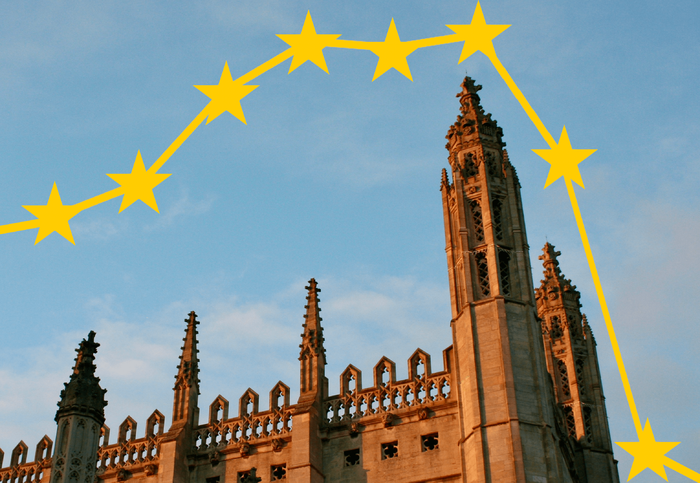Cambridge’s annual economic impact worth £30bn, report shows
A report by London Economics estimates the University contributes nearly £30bn a year to the UK economy and supports over 86,000 jobs

According to a report released yesterday (20/03), the University of Cambridge contributes nearly £30bn a year to the UK economy, supporting over 86,000 jobs across the UK.
The report concluded that the University has an economic impact which is almost four times greater than that of the English Premier League. The Premier League, which is widely regarded as one of the UK’s premium cultural exports, added £7.6bn of value to the economy in 2019-20.
Every £1 spent by the university created £11.70 in economic value, the report showed. Of the £29.8bn annual impact, the University’s research and knowledge exchange activities alone contributed £23.1bn.
This includes the economic impact generated by the spinouts and startups connected to the University. Some notable spinouts include Nyobolt, a fast-charging battery startup that aims to tackle electric car range anxiety, and Abcam, a leading supplier of protein research tools which is now a multi-billion-dollar business.
The remaining contributions came through university and college spending, educational exports, teaching and learning activities and tourism associated with the University.
The report was prepared by London Economics, one of Europe’s leading specialist economics and policy consultancies, and was commissioned by the University. It assesses the University’s economic impact in 2020-21.
According to the University, this impact is not an accident but a result of a “very deliberate strategy of investing in innovation and commercialisation over past decades”. The establishment of the UK’s first science park in 1970 by Trinity College and an “IP policy that encourages further investment” were some instances included as part of the strategy.
Acting vice-chancellor Anthony Freeling said: “This report demonstrates how international excellence coupled with a deliberate strategy of investing in innovation creates jobs and significant growth for the UK economy.”
Suggesting the University’s intent to continue on this pathway, Freeling also said: “The University and our partners across the UK will continue to work with the government to […] grow the economic impact of the University alongside academic excellence.”
Freeling also called on the UK government to commit to participating in the EU funding body Horizon Europe, as he said that “an early commitment to Horizon Europe is essential to underpinning future success, as it provides not only the stability of funding required to make long-term research plans but also access to vital international networks and collaborations.”
Last month, statistics demonstrated that European research funding for Oxbridge had collapsed. Cambridge was awarded £433 million over the seven years of the last European research funding programme (Horizon 2020) but has not received any funding in the first two years of the new Horizon Europe programme.
Last year, then vice-chancellor Stephen Toope supported a campaign that called for an “open and collaborative research and innovation landscape in Europe that is free from political barriers” as the UK’s involvement in the Horizon Europe scheme stalled amid post-Brexit uncertainty.
 Arts / Plays and playing truant: Stephen Fry’s Cambridge25 April 2025
Arts / Plays and playing truant: Stephen Fry’s Cambridge25 April 2025 News / Candidates clash over Chancellorship25 April 2025
News / Candidates clash over Chancellorship25 April 2025 Music / The pipes are calling: the life of a Cambridge Organ Scholar25 April 2025
Music / The pipes are calling: the life of a Cambridge Organ Scholar25 April 2025 Comment / Cambridge builds up the housing crisis25 April 2025
Comment / Cambridge builds up the housing crisis25 April 2025 Comment / Pick an exam format and stick to it25 April 2025
Comment / Pick an exam format and stick to it25 April 2025






